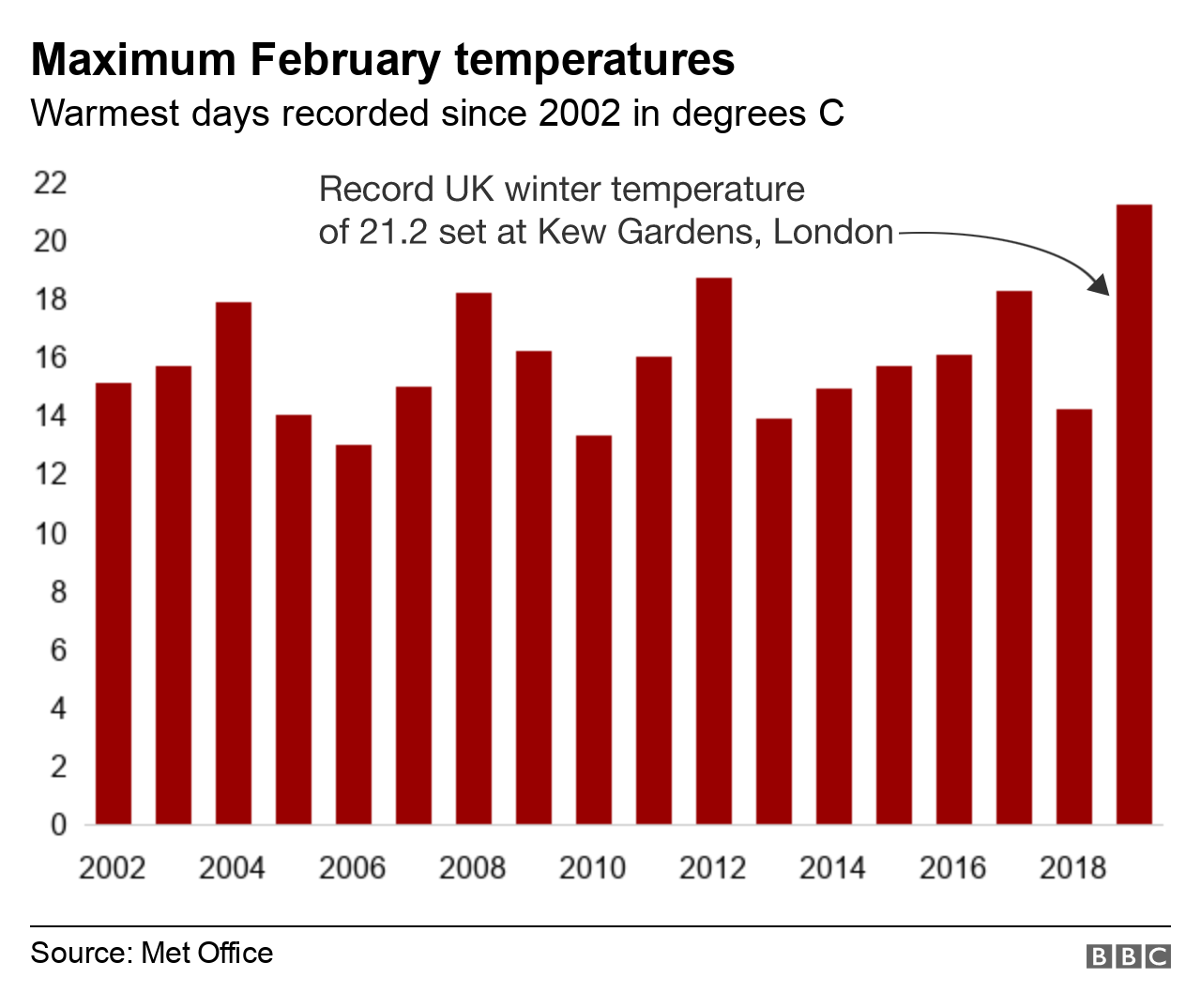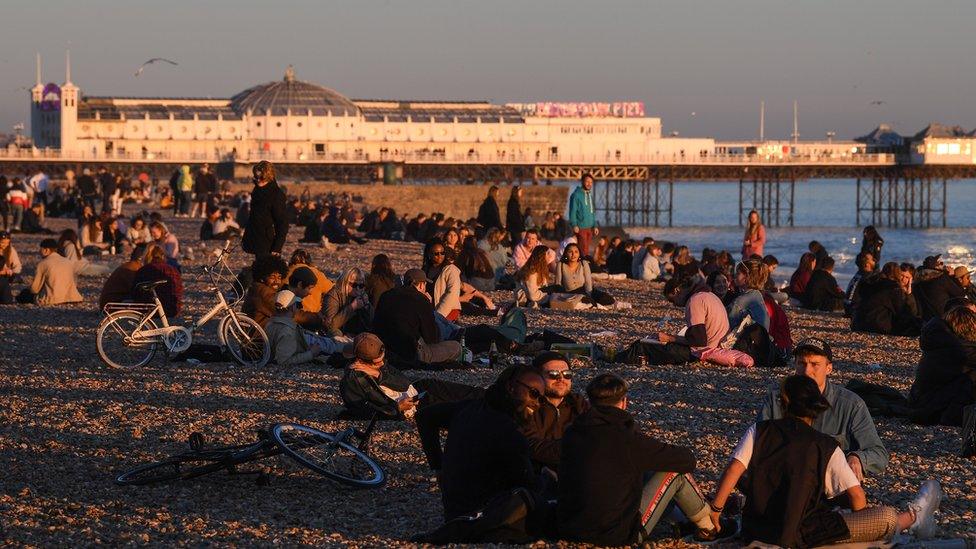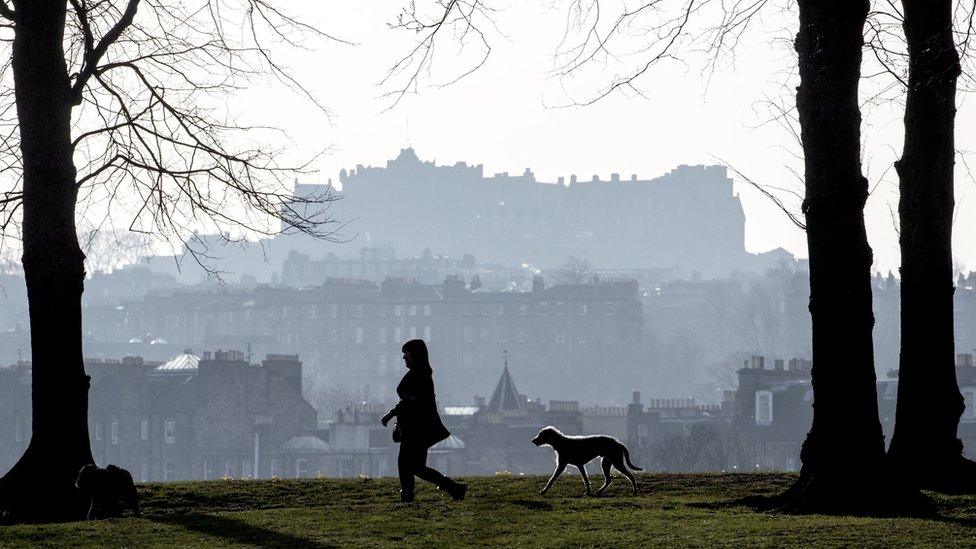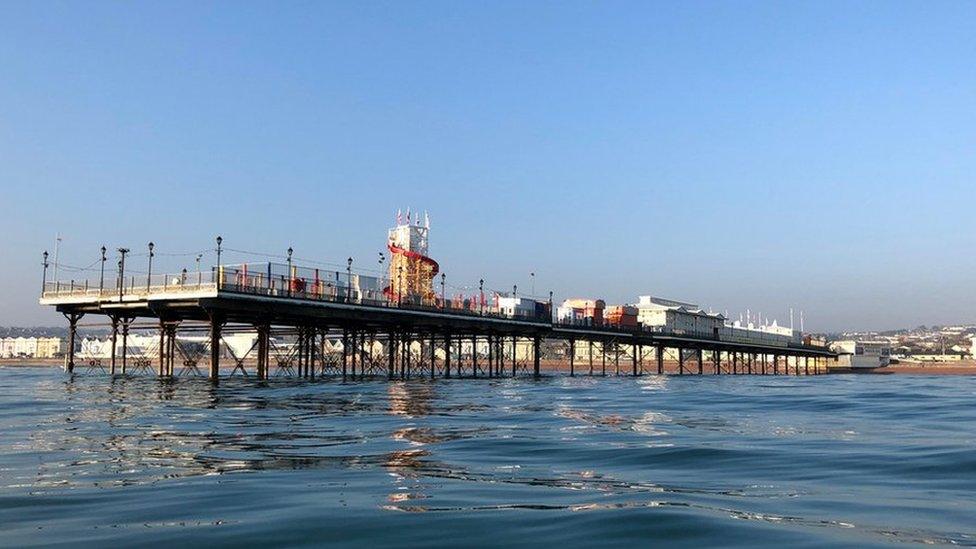UK beats winter temperature record again
- Published
- comments

Dorset in February: A surfer gets ready to catch some morning waves at Boscombe beach
The UK has broken the record for its warmest winter day for the second consecutive day, with a temperature of 21.2°C in Kew Gardens, London.
Monday was the first time temperatures of over 20C had been reported in winter, breaking a record that had stood since 1998.
It means parts of Britain have been hotter than destinations such as Ibiza.
Last February, temperatures in the UK plunged as low as -11.7C at South Farnborough, Hampshire.
Temperatures broke the previous day's record of 20.6C in two other places, the Met Office said.
Porthmadog in north-west Wales hit 20.8C while temperatures of 20.7C were reported in Teddington, south-west London.
In Scotland, the temperature reached 18.3C on 21 February in Aboyne, Aberdeenshire, breaking a record of 17.9C which had stood for more than 120 years.
In Northern Ireland, temperatures reached 15.6C in Castlederg, County Tyrone. The February record of 17.8C was recorded in 1998.
Meanwhile, firefighters have warned the warm weather could lead to a greater risk of outdoor fires.
The warning, from East Sussex Fire Service, came after two large fires broke out in Ashdown Forest - the East Sussex forest made famous by AA Milne's Winnie the Pooh novels.
'Wetter weather ahead'
The BBC Weather Centre said it was likely to be one of the warmest Februaries since records began in 1878.
Sunny, warm conditions are expected to last into Wednesday, when maximum temperatures at Kew Gardens and Porthmadog are forecast to be slightly cooler at 19C and 17C respectively.
On Thursday, a high pressure system is expected to break down as wetter, windier weather moves in across Wales and into England.

Dr Friedericke Otto, acting director of the Environmental Change Institute at Oxford University, said people were right to ask themselves whether the record temperatures were being driven by climate change.
"I am very confident to say that there's an element of climate change in these warm temperatures," she said.
"But climate change alone is not causing it. You have to have the right weather systems too."
BBC science editor David Shukman said scientists such as those at the Met Office were usually reluctant to link individual heatwaves, storms or floods directly to climate change without a specific study to prove it.
But he said research had shown that events like last summer's heatwave were made more likely by the rising levels of carbon dioxide and other greenhouse gases in the atmosphere.

What February looks like in Devon: Soaking up the rays near Woolacombe

Many Londoners headed to parks, like here among the daffodils in St. James's

Allow Instagram content?
This article contains content provided by Instagram. We ask for your permission before anything is loaded, as they may be using cookies and other technologies. You may want to read Meta’s Instagram cookie policy, external and privacy policy, external before accepting. To view this content choose ‘accept and continue’.

The unusually high temperatures have prompted hedgehogs to come out of hibernation, butterflies to emerge and migrating birds such as swallows and house martins to arrive more than a month early.
The RSPB said birds, insects and other wildlife could face "a real crisis" if the weather turns colder, as forecasts predict.
Trees such as field maples and European larches have also been budding early, according to the Woodland Trust.

The sea near Dungeness, Kent, sparkled in the sunshine as a sailing boat went by

The scene at Brighton beach on Monday afternoon

Inverleith Park in Edinburgh was bathed in light in the early morning
The warm weather is in stark contrast to February 2018, when the so-called "Beast from the East" brought freezing temperatures and heavy snow, with 21cm recorded at Copley, Durham, on the last day of the month.
Then, high pressure moving north into Scandinavia drew cold air towards the UK from Siberia.
This week's conditions come instead from the tropical Atlantic and parts of north Africa.
February 2018 and February 2019 in contrast
- Published26 February 2019

- Published26 February 2019

- Published27 August 2019

- Published22 February 2019
